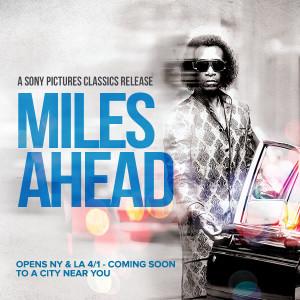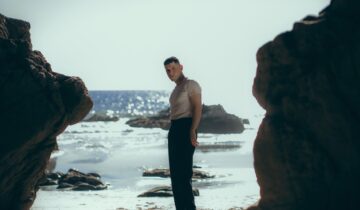 For 1843 Magazine: When we think of Miles Davis, we think of the clean-cut, sharp-suited trumpeter playing those cool, sparse sounds from his canonical early albums, “Kind of Blue” (1959) and “Sketches of Spain” (1960). That’s not the Davis we get in “Miles Ahead”, the new biopic directed by and starring Don Cheadle. It’s the late-1970s and Davis has taken a break from recording; he’s on medication to ease the chronic pain in his hip. He spends a lot of time in pyjamas. The days of suits, short hair and cool, modal jazz are behind him. A Rolling Stone reporter (Ewan McGregor) shows up – he’s keen to write about Davis’s comeback – and it becomes a sort of buddy film, in which McGregor’s reporter helps Davis retrieve a stolen reel of new recordings.
For 1843 Magazine: When we think of Miles Davis, we think of the clean-cut, sharp-suited trumpeter playing those cool, sparse sounds from his canonical early albums, “Kind of Blue” (1959) and “Sketches of Spain” (1960). That’s not the Davis we get in “Miles Ahead”, the new biopic directed by and starring Don Cheadle. It’s the late-1970s and Davis has taken a break from recording; he’s on medication to ease the chronic pain in his hip. He spends a lot of time in pyjamas. The days of suits, short hair and cool, modal jazz are behind him. A Rolling Stone reporter (Ewan McGregor) shows up – he’s keen to write about Davis’s comeback – and it becomes a sort of buddy film, in which McGregor’s reporter helps Davis retrieve a stolen reel of new recordings.
Things are looking up. And yet, Davis is haunted by his “Kind of Blue” past. The film’s non-linear, almost syncopated narrative often cuts back to his early days, when his experimentation with modal jazz – which focuses on scales rather than chords – resulted in a sound that was less cluttered and less fast-paced than bebop, the dominant strand of jazz at the time. It’s the period in which he composed songs with deceptively simple melodies (most notably “So What”) which won over the record-buying public, even the unlikeliest of jazz fans. In one scene, a young cocaine dealer tells Davis that the music from this period is the best stuff, the tunes everybody likes.
But Davis was as restless as this film. He didn’t want to become a pastiche of himself. He wanted to keep trying new things. Davis was blown away by Jimi Hendrix and Sly and the Family Stone, and wanted to tap into that rebelliousness. Inspired by the electric energy of rock and funk, he changed his approach to music. The results can be both exciting and frustrating.
His 1970 jazz-rock album “Bitches Brew” did away with the clear hooks and defined melodies of his earlier work. It’s comprised not so much of songs but moods, ones which are conjured by heavy doses of electric piano and effects-laden trumpet. “On the Corner” (1972) went even further in this electric, psychedelic-funk direction. Critics despised it, but Davis was constantly trying to redefine what “jazz” was or could be. Some of his music is brilliant, and some of it feels like someone who hasn’t quite found what they’re looking for. Regardless, Davis’s commitment to that artistic quest is un-matched.
Cheadle portrays Miles as a man who was as unpredictable as his music. He’s flat-out mean and manipulative; also tender, sensitive and funny. “Miles Ahead” doesn’t try to tick all the boxes of Davis’s life, but it does want viewers to understand that he loved music enough to allow it to be free to grow and change, despite pressures from record labels, fans and colleagues to stay the same. After seeing the film, it’s worth binge-listening to music from every decade of his career. Some of it is beautiful, a lot of it is exciting, and some begs to be skipped over. All of it is authentically Miles.
Image: promotional film poster



